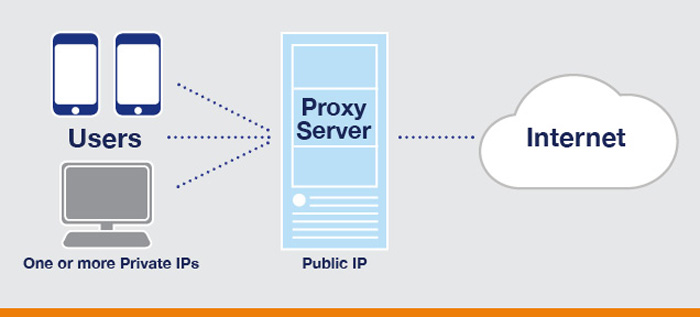Within the current digital landscape, web scraping has turned into an indispensable tool for businesses and individuals seeking to gather data from the huge expanse of the internet. However, as web scraping evolves, so do the obstacles associated with it, especially concerning the risk for IP bans and data restrictions. One efficient way to overcome these obstacles is through the use of proxy servers. These facilitators not only allow users to access data more effectively but also play a crucial role in preserving anonymity and enhancing online security.
Understanding how proxy servers function and the various types out there can significantly impact your web scraping success. From protecting your identity online to improving the overall effectiveness of data collection, proxies provide several benefits that address different needs. In this article, we will explore the best practices for using proxy servers in web scraping, covering all aspects from their benefits and types to tips on steering clear of issues such as IP bans. Whether a seasoned data scraper or just starting, mastering the use of proxy servers can elevate your scraping operations to a new level.

Understanding Proxy Services
A proxy server acts as an middleman between a user's device and the internet. When a individual asks for a web content, the query is sent to the service first, which then passes it to the intended site. This server receives the response from the site and sends it back to the user. By doing this, proxy servers can mask the client's IP address, provide anonymity, and enable safe browsing.
There are numerous types of proxies available, each designed for specific purposes. click are designed for HTTP requests, while SOCKS proxies can handle any type of data. Transparent solutions do not alter queries or feedback, making them suitable for storage and web filtering. Understanding these types is crucial for selecting the right proxy for specific activities, such as web scraping or viewing geographically restricted content.
Using proxy services comes with a myriad of benefits, particularly regarding online privacy and protection. They can hide a individual's identity, protect confidential info, and prevent malicious entities from tracking online activities. Additionally, businesses rely on proxy solutions to enhance protection measures and ensure safe data communication. This combination of features makes proxy services a crucial tool for anyone looking to boost their digital experience.
Advantages and Drawbacks of Utilizing Proxy Servers
Utilizing proxy servers provides several benefits, especially in improving online secrecy and safety. Proxies act as intermediaries between individuals and the internet, hiding the user's IP address and enabling for anonymous browsing. This secrecy helps protect personal data from being tracked by sites and external entities. Additionally, proxies can enable users to view geo-restricted content, simplifying the process to browse a broader array of online resources without facing location barriers.
Nevertheless, there are threats associated with using proxy servers, especially free ones. Free proxies often jeopardize safety and confidentiality, as they may log user data or even insert malicious ads into web traffic. Users may also experience unreliable connections and decreased speeds due to shared bandwidth. Furthermore, some proxies can lead to access bans from certain websites that recognize proxy usage, causing annoyance for users attempting to extract data or access particular services.
To maximize the advantages while reducing risks, users should choose trustworthy proxy services, preferably those that offer strong encryption and a strict no data retention policy. It's crucial to know the type of proxy being utilized—whether HTTP, SOCKS, or home-based—as each has various use cases and implications for safety. By being informed and vigilant, users can take full advantage of the advantages of proxies while safeguarding their online activities.
Effective Techniques for Data Harvesting with Proxy Servers
When performing web scraping with proxies, it is essential to select the right type of proxy based on your particular needs. https://omeka.net are frequently preferred for large-scale scraping tasks, as they provide IP addresses tied to genuine residential devices, making them less prone to be blocked by target websites. On the flip side, data center proxies can be used for efficient scraping when anonymity is not a top priority, but be mindful that they are more easily identifiable as non-residential and may face more regular bans.
Another essential practice is to change your proxy IPs regularly to avoid IP bans and CAPTCHAs. Many proxy providers offer IP rotation services, which automatically change your IP address at predetermined intervals or request limits. This tactic helps ensure that your scraping activities remain under the radar by mimicking the behavior of a standard user, thereby reducing the risk of detection and blocking. Additionally, adding delay mechanisms among requests can further lower the possibility of being flagged as a bot.
Finally, always remember to adhere to the lawful and moral guidelines of web scraping. Review the terms of service for the websites you wish to scrape and respect their rules regarding mechanical data collection. Implementing responsible scraping practices will not only safeguard your proxy accounts but also help maintain the integrity of the online environment. By integrating the correct type of proxies with dynamic proxy techniques and responsible practices, you can perform successful and ethical web scraping.
